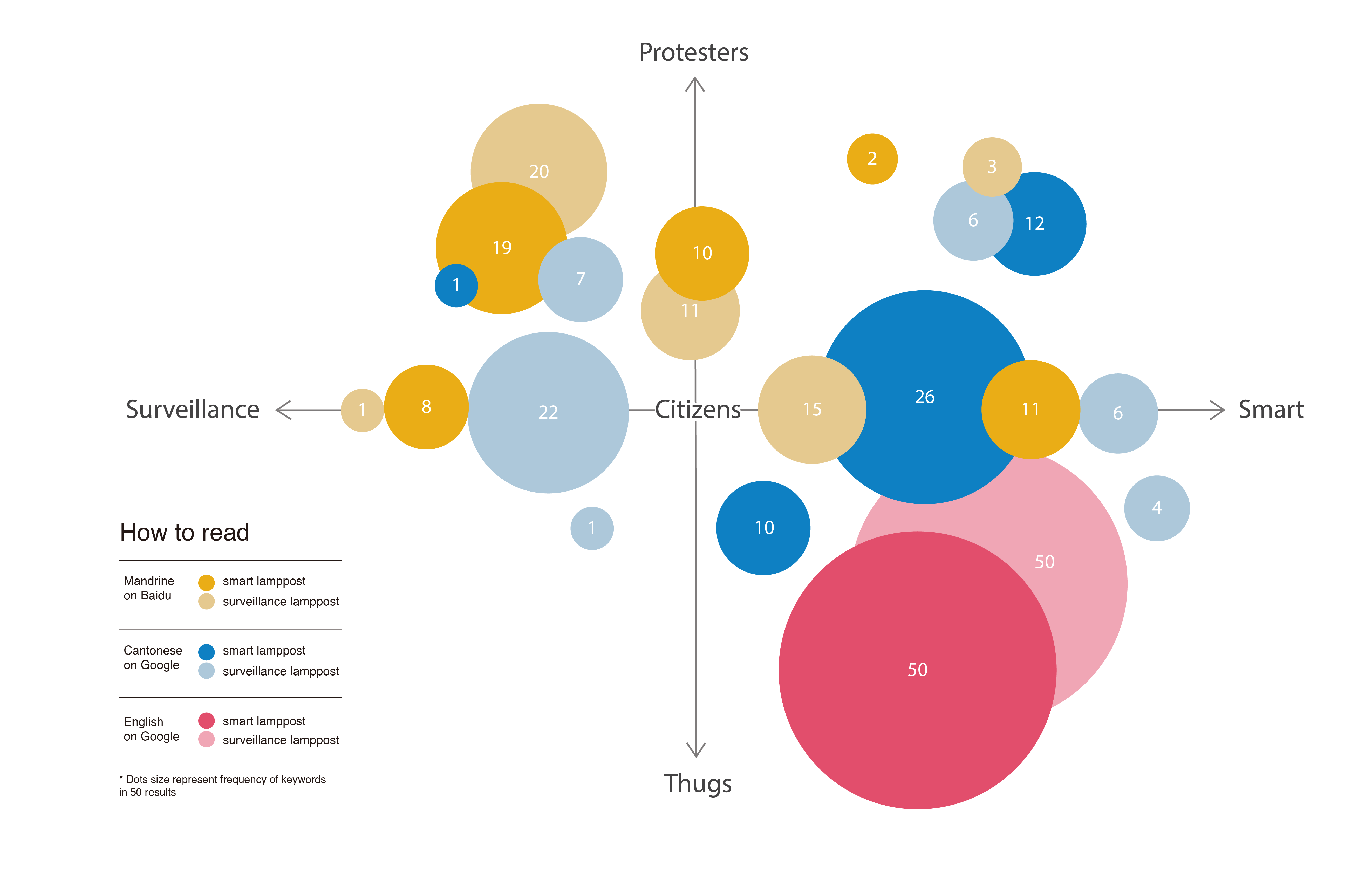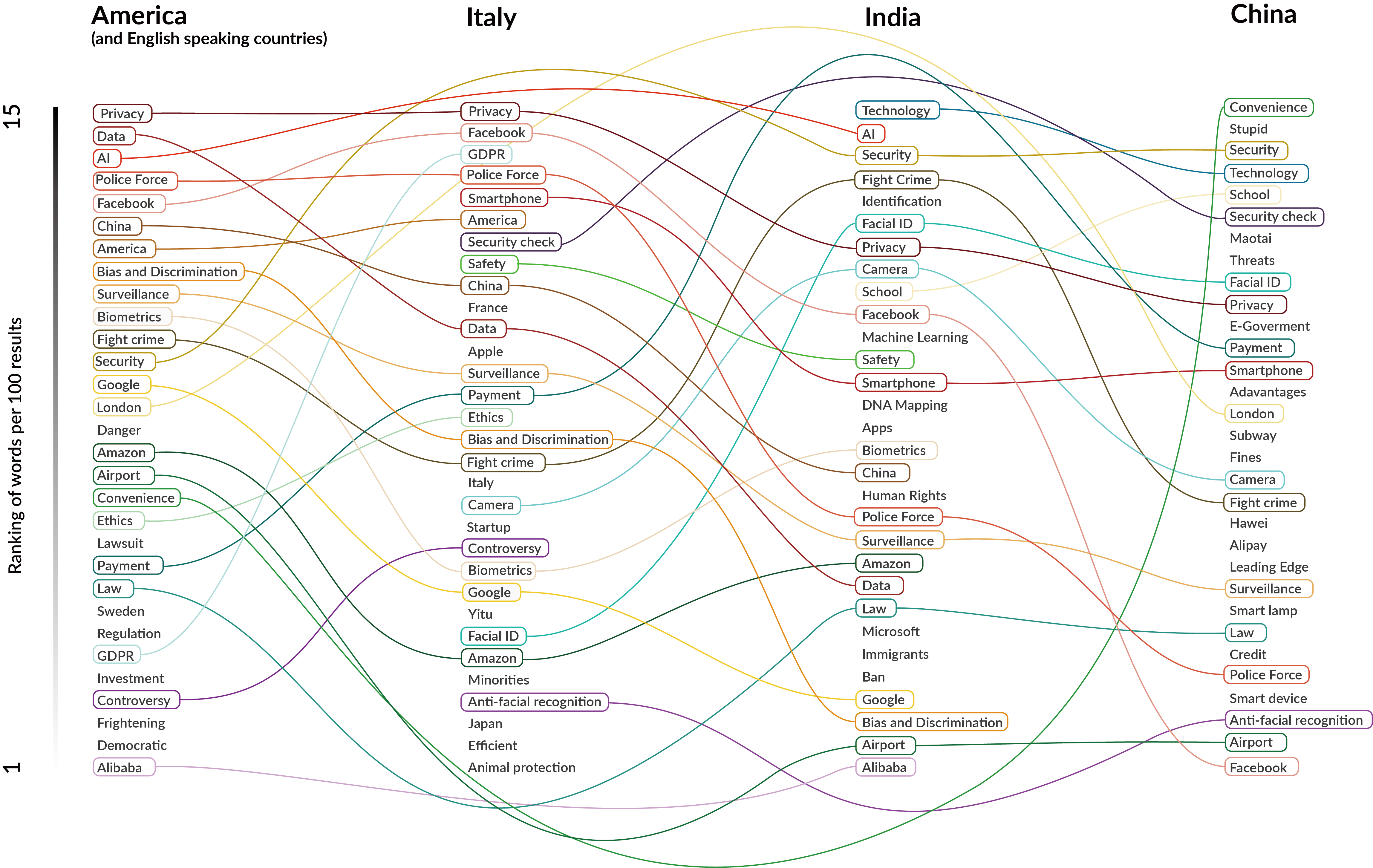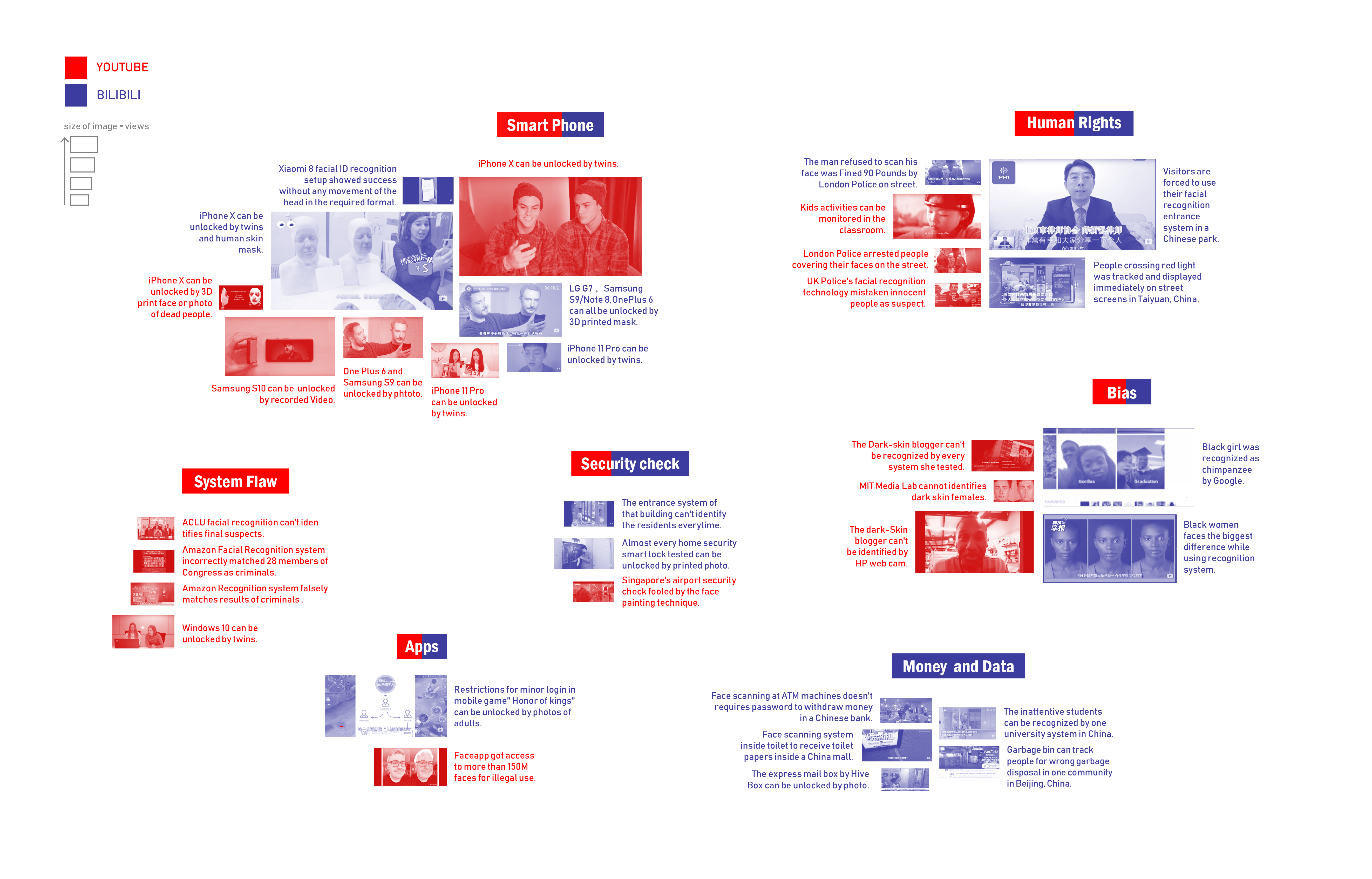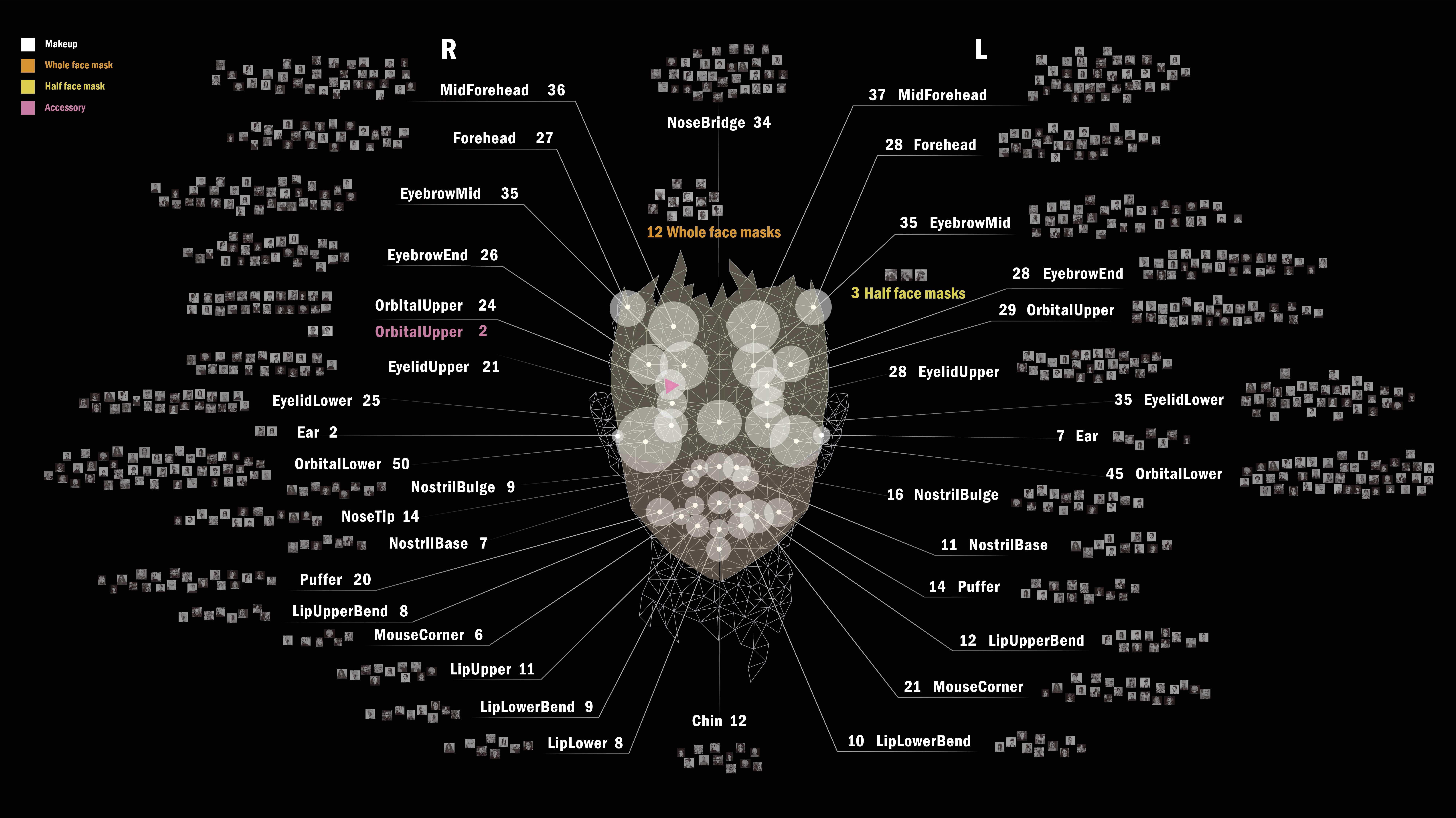Are you surprised when you find out Facebook can recognize all your friends in your photos and tag them automatically? Or are you amazed by the news that a missing child was spotted in a few hours using facial recognition technology?
It seems like this technology only appears in science fiction movies a few years ago. But now facial recognition has been widely used for security and surveillance in urban spaces, airports, smartphones and online payments. Along with the convenience it brought us, a number of concerns rise: privacy, human rights violation, racial bias.
Contrarily, how people’s attitudes and concerns are different towards facial recognition in eastern and western countries? Are they embracing it, or counteracting it? And how are people reacting to protect themselves from this technology?
By exploring entities from digital media platforms, different perspectives and related concerns have been analyzed and visualized in the form of multiple research protocols.
These protocols starts from a specific case and then highlight the current discussions, potential threats and possible countermeasures from people across different nations. Through these protocols, we found that eastern nations believed more about the use of technology in improving their daily life and security society, while western nations argue more on ethical issues like human rights and bias. At the same time, ways of anti-facial recognition become new trends on social media.




